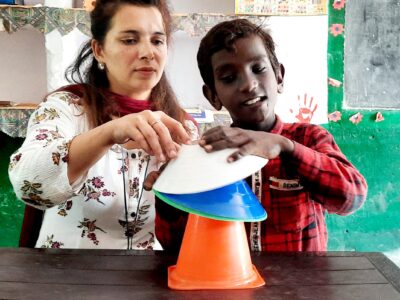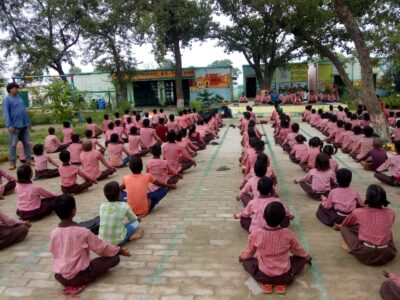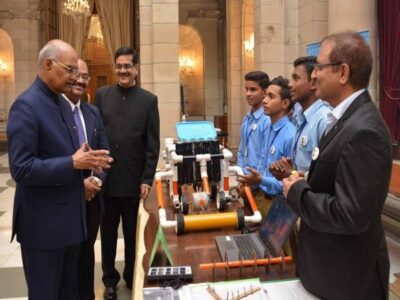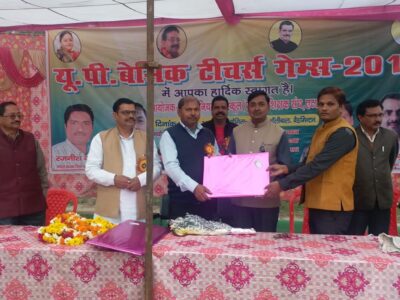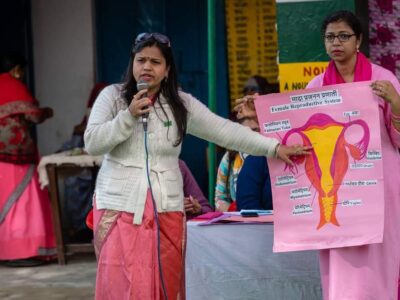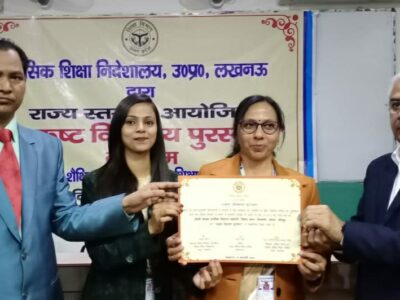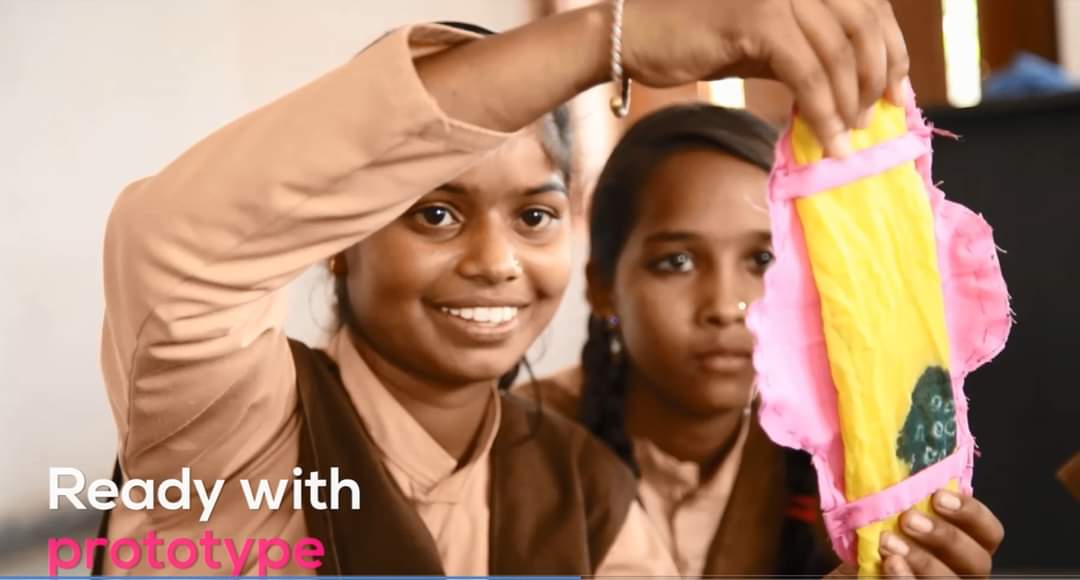
Menstruation- My right: Awareness to Accessibility.
Their work was acknowledged by the chief minister of Rajasthan Smt Vasundhara Raje who awarded these girls and praised them. They were also selected as Ashoka Young Change- Maker.
Mark Anthony said, “And one day she discovered that she was fierce, and strong, and full of fire, and that not even she could hold herself back because her passion burned brighter than her fears.” This story tells the tale of two such girls. May 28 is observed as Menstrual Hygiene Day globally. Menstruation is normal and a healthy part of life, yet girls and women in India go through extreme struggles to manage their period every month. This story is about two girls Premi Kanwar and Shivani Bhoi, studying in government school Rajkiy Uchh Madhyamik Vidyalaya, Sallada, Udaipur, Rajasthan. They are from an ordinary background but the work that they are doing is truly an extraordinary work. They are breaking the stigmas and taboos related to menstruation and making people aware of menstrual hygiene. In the words of Shivani and Premi- “Our only goal is that every women of this country must have access to absorbant sanitary napkins at affordable prices.”
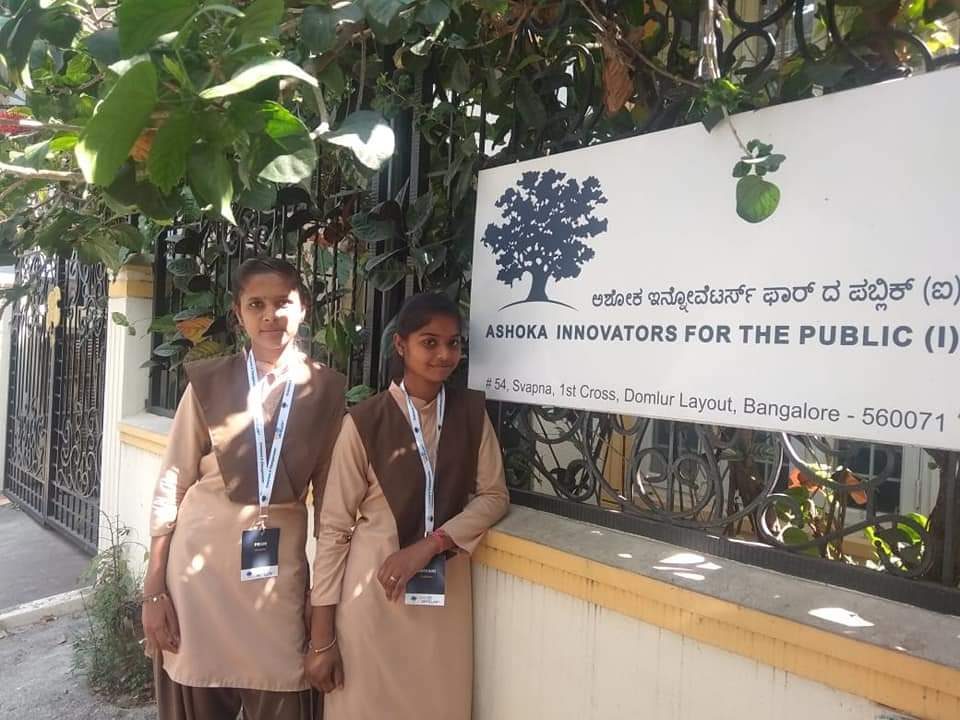
Stigmas still exist
Sallada is a small tribal belt village where people are not much aware of the fast ongoing changes in the world. A large chuck of the Indian population believes this natural cycle to be a ‘curse’, ‘impure’ and ‘dirty’ among other things, courtesy of the ancient myths surrounding menstruation in our country. According to Census 2011 population data, about 336 million girls and women in India are of reproductive age and menstruate for 2-7 days, every month, and yet the topic of menstruation is expected to be a hush affair and kept under wraps of the ‘black plastic bags’, which is given to most of us each time we buy sanitary napkins. Similar is the case with this village. Women of this village were treated like an untouchables during their period. They were not allowed to enter their own home and kitchen. They were forced to live in the verandah or a separate room and bed were assigned to them. They were forbidden to make contact with any other members of the family; in a separate utensils, food and water were provided to them. There was a lack of awareness regarding healthy menstrual practice. They were using dirty clothes during these days, which increases their chances of contracting cervical cancer, Reproductive Tract Infections, Hepatitis B infection, and various types of yeast infections and Urinary Tract Infection.
Efforts that led to desired destination
These girls faced the same problem and soon they realised that when a girl faces challenges in managing her period in a healthy manner, it can cause a number of problems to her physical as well as mental health. Not only will she be at risk of infection, but her education, self-esteem, and confidence also suffer in a major way. With this realisation, they made a group of 15 and started making sanitary napkins at home. In the beginning they used the old cotton clothes available in their home and stitched it with the hand, which they felt were not perfect. Soon they came up with a solution and began using banana fiber for making sanitary napkins. This idea worked and they became successful in their attempt.
Breaking the glass ceiling
The way to bring some change in the society is never easy. These girls also faced lots of struggles. No one was ready to talk on this issue, not even women supported them. They were looked down because of their work. First of all they started talking about this issue in their girl’s circle and took them in confidence, the next move was to convince the women who were literate and then finally they reached to all the women in their village. This strategy worked, they went door to door and spread awareness. At first they distributed these napkins free of cost and made them understand how to use it. Women in the village used it and they themselves admitted that it helped them a lot and it is reusable and affordable unlike those available in the market. Thus they successfully coveyed the strong message that menstruation is the right of every women. There is no need to feel shame about it rather we need to talk about it openly. Now they are producing it at a large scale and selling 6 napkins in just Rs. Twenty-five.
Empowering women to empower nation
These girls were throughout supported and motivated by Mr. Ramesh Chandra Jain, former member of panchayat samiti, and social workers like Ashwini jee and Ms. Komal. Their work are not only limited to building confidence of these girls towards this initiative but they have also done other works to empower the women of this area. They ran a campaign of Swachcha Bharat and raises awareness regarding cleanliness and ensuring that every house must have a toilet of their own. Earlier the women of this village were carrying a sense of inferiority, they used to sit on the ground, were confined to four walls of their home. Now they are coming out in open, running shops, sitting on chair, doing small business. There were prevailing a practice of veil which was also abolished now. Thus empowering women to empower nation.
When society acknowledged them
They even provided platforms to these girls as they went outside their village and made other people also aware of healthy menstrual practice in different villages. Their work was acknowledged by the chief minister of Rajasthan Smt Vasundhara Raje who awarded these girls and praised them. They were also selected as Ashoka Young Change- Maker. To accomplish this mission, these girls need more sewing machines so that they can produce affordable napkins and make its reach to every women who cannot afford the costly one available in the market and modern means of communication such as tablets or smartphones to raise awareness at mass level by showing videos and films on this issue. Their product needs to be marketed online so that they can also earn to fulfill their requirements. As a responsible citizen of India we must support this initiative and these small girls in their efforts. To help please contact on this number-
We congratulate Premi Kanwar and Shivani Bhoi who are working for the society and changing it to a better place to live for women. SarkariSchool.in salutes the creators of India’s tomorrow Premi Kanwar and Shivani Bhoi , their efforts and dedication. Sarkari Sabse Asarkari!
(With Puja Kumari)
Do like, comment and share the story. Also follow us on Facebook, Instagram and subscribe our YouTube channel.
All the stories are originally designed by team Sarkari School. Strict action will be taken against plagiarism.

